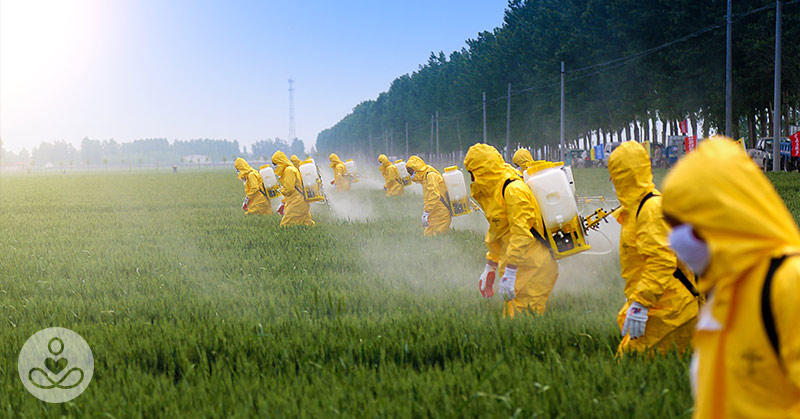This article was originally published on April 2, 2019, and has since been updated.
It wasn’t that long ago that someone with Celiac disease would have a hard time ordering meals at restaurants or finding safe gluten alternatives for themselves at the grocery store. Now, gluten-free options seem to be the norm almost everywhere you go in North America.
What happened? Is celiac disease on the rise? Did we just get better at finding gluten intolerances in people? Or did William Davis, M.D.’s bestseller, Wheat Belly just make people imagine their symptoms?
Why People Without Celiac Disease Are Quitting Wheat & Gluten
Armin Alaedini, an immunologist at Columbia University, used to be skeptical when he heard people say that quitting wheat really improved their digestive health, even though diagnostic tests showed they didn’t have any signs of celiac disease. However, a 2012 Italian research study identifying people with gluten sensitivity completely changed his mind.
When Alaedini and his team analyzed the blood samples of the 80 people diagnosed with gluten sensitivity, they were surprised by what they saw. Compared to people with celiac disease and healthy people, the 80 had much higher levels of a type of gluten antibody. In other words, their bodies showed signs that their digestive tract was allowing partially digested gluten to escape the gut and enter the bloodstream- what is unofficially known as leaky gut. (1)
“This is a real condition, and there can be objective, biological markers for it. That study changed a lot of minds, including my own,” Alaedini told Science Magazine. (2)
But the question still remains: why do so many people seem to have an inflammatory response to eating gluten?
Read More: Important Facts You Need to Know About Gluten (and Celiac Disease)
What’s Behind Non-Celiac Gluten Sensitivity?
Celiac disease has causes rooted in genetics. People with celiac disease have a natural immune response to gluten, which can sometimes be latent until a major event such as surgery, pregnancy, infection, or emotional trauma triggers a reaction. Its risk factors include Type 1 diabetes, down syndrome, autoimmune thyroid disorder, and rheumatoid arthritis. (3) When it comes to people diagnosed with celiac disease, we know that gluten itself is the culprit behind symptoms like diarrhea, bloating, weight loss, and anemia.
However, there isn’t the same consensus among medical professionals for people who have non-celiac gluten sensitivity (NCGS).
Australian gastroenterologist Peter Gibson at Monash University, for example, is convinced that NCGS symptoms are actually shared by all FODMAP foods, not just gluten. Alessio Fasano, a pediatric gastroenterologist at Massachusetts General Hospital, isn’t sure what’s causing symptoms, and he’s not very interested in finding out, either. “Ultimately, we’re here not to do science, but to improve quality of life. If I have to throw bones on the ground and look at the moon to make somebody better, even if I don’t understand what that means, I’ll do it,” he told Science Magazine. (2)
Looking back to a 2013 research study that didn’t make many waves could point to the missing piece of this puzzle (4).
Two Scientists Claim Glyphosate Could Be Making You Gluten Sensitive
Independent scientist Anthony Samsel of New Hampshire and MIT computer science researcher Stephanie Seneff, Ph.D., theorize “that glyphosate, the active ingredient in the herbicide, Roundup®, is the most important causal factor in this [gluten sensitivity] epidemic.” Their 2013 review, published in Interdisciplinary Toxicology, hinges on some key evidence: (4)
- Fish exposed to glyphosate develop similar digestive problems to celiac disease.
- Glyphosate causes an imbalance of gut bacteria in the same way that celiac disease affects gut bacteria.
- Glyphosate inhibits cytochrome P450 enzymes, which is the same impairment strongly associated with celiac disease.
- Glyphosate has a strong ability to chelate iron, cobalt, molybdenum, and copper; celiac disease is commonly associated with deficiencies in all of these.
- Similarly, glyphosate depletes tryptophan, tyrosine, methionine, and selenomethionine; celiac disease is commonly associated with deficiencies in these amino acids.
- Glyphosate exposure has been linked to non-Hodgkin’s lymphoma, a common increased risk associated with celiac disease.
- Glyphosate has been linked to birth defects and infertility, reproductive issues which have been associated with celiac disease.
Samsel and Seneff propose that these overlaps aren’t just coincidences but that what seems like an adverse reaction to gluten is the body’s response to a toxic chemical sprayed on almost all wheat crops. They conclude with a plea: “We urge governments globally to reexamine their policy towards glyphosate and to introduce new legislation that would restrict its usage.” (4)
However, their beliefs do not reflect scientific consensus, and most scientists disagree with the duo. A critical analysis of their work was published in 2017 claiming that “…commentaries published by Samsel and Seneff reveals that their conclusions are not substantiated by experimental evidence but are based on a type of failed logic known as syllogism fallacies.” and that “This misrepresentation of glyphosate’s toxicity could waste a large amount of time on the part of regulators, industry, and the concerned public…” (5)
In the end, if you’d prefer to avoid glyphosate, you can purchase organic foods. Even then, you may not be able to completely avoid it. If you’re experiencing problems with your digestive health, we strongly recommend you seek advice from your medical care provider, especially a food allergy/sensitivity specialist. It does require patience to sort out the true cause of your symptoms, but it’s worth the process to improve your quality of life.
Sources
- https://gut.bmj.com/content/early/2016/07/21/gutjnl-2016-311964
- https://www.sciencemag.org/news/2018/05/what-s-really-behind-gluten-sensitivity
- https://www.mayoclinic.org/diseases-conditions/celiac-disease/symptoms-causes/syc-20352220
- https://www.ncbi.nlm.nih.gov/pmc/articles/PMC3945755/
- https://www.frontiersin.org/articles/10.3389/fpubh.2017.00316/full
Disclaimer: This information is not intended to be a substitute for professional medical advice, diagnosis or treatment and is for information only. Always seek the advice of your physician or another qualified health provider with any questions about your medical condition and/or current medication. Do not disregard professional medical advice or delay seeking advice or treatment because of something you have read here.

